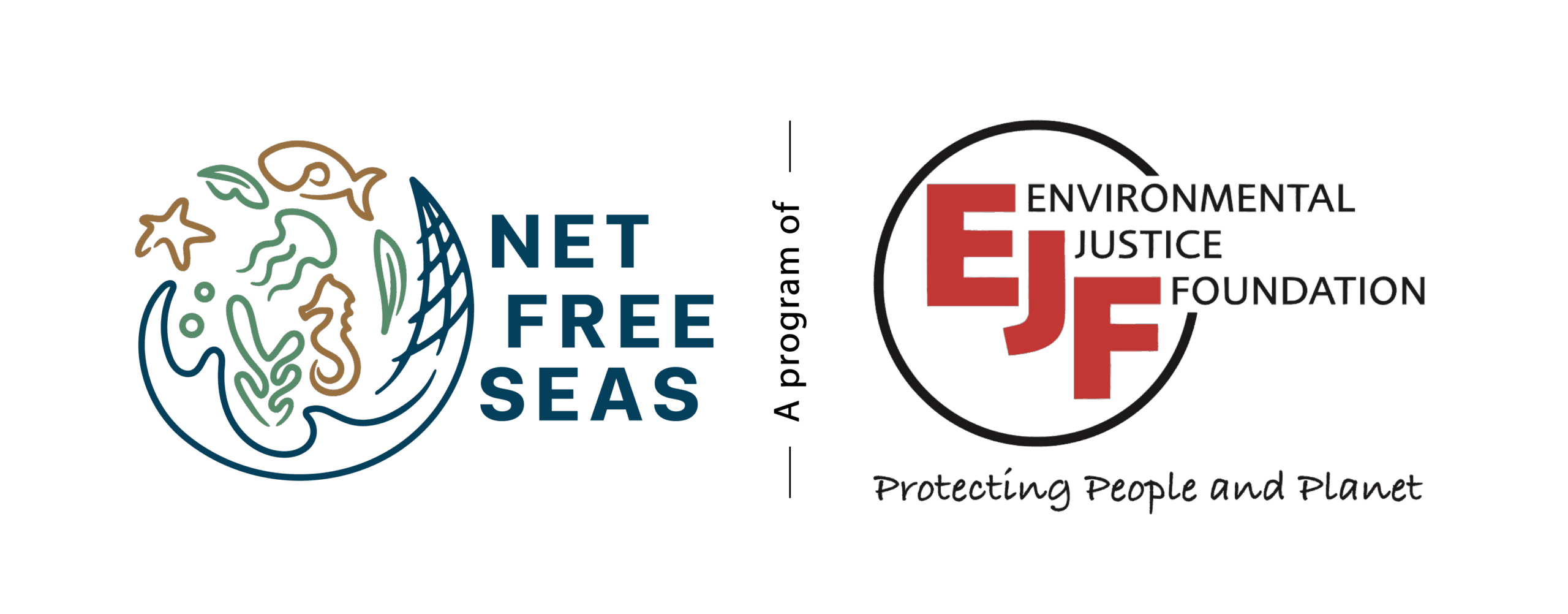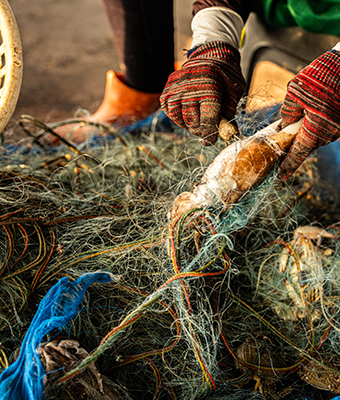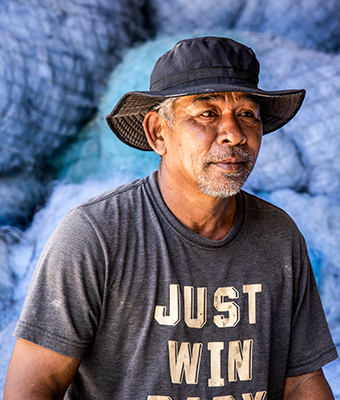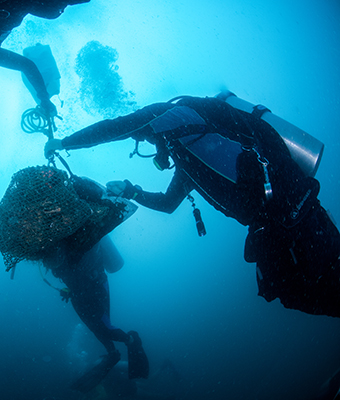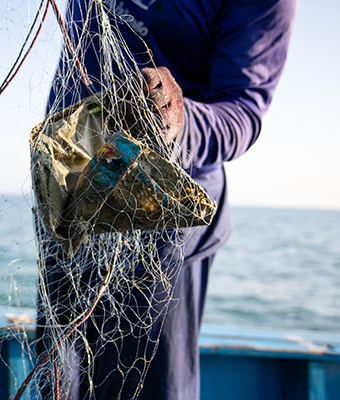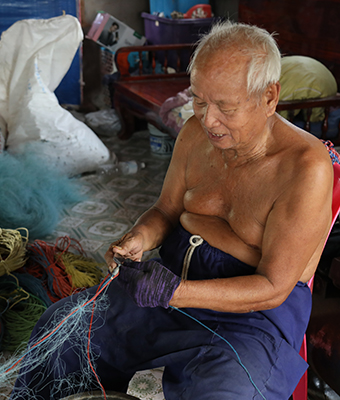Net Free Seas by Environmental Justice Foundation (EJF)
Net Free Seas (NFS) is a community-driven initiative by Environmental Justice Foundation (EJF) to address the critical issue of abandoned, lost, and discarded fishing gear (ALDFG) in Thailand. By empowering artisanal fishers and coastal communities—those on the frontlines of the marine plastic crisis—the project works to reduce the devastating impact of ALDFG on marine ecosystems, biodiversity, and livelihoods.
With support from the ECCA Family Foundation, NFS is scaling up sustainable and socially responsible fishing gear management practices. Through a combination of community empowerment, infrastructure development, and policy advocacy, the project integrates local insights and traditional knowledge to deliver evidence-based solutions at the national, regional, and international levels.
Challenge
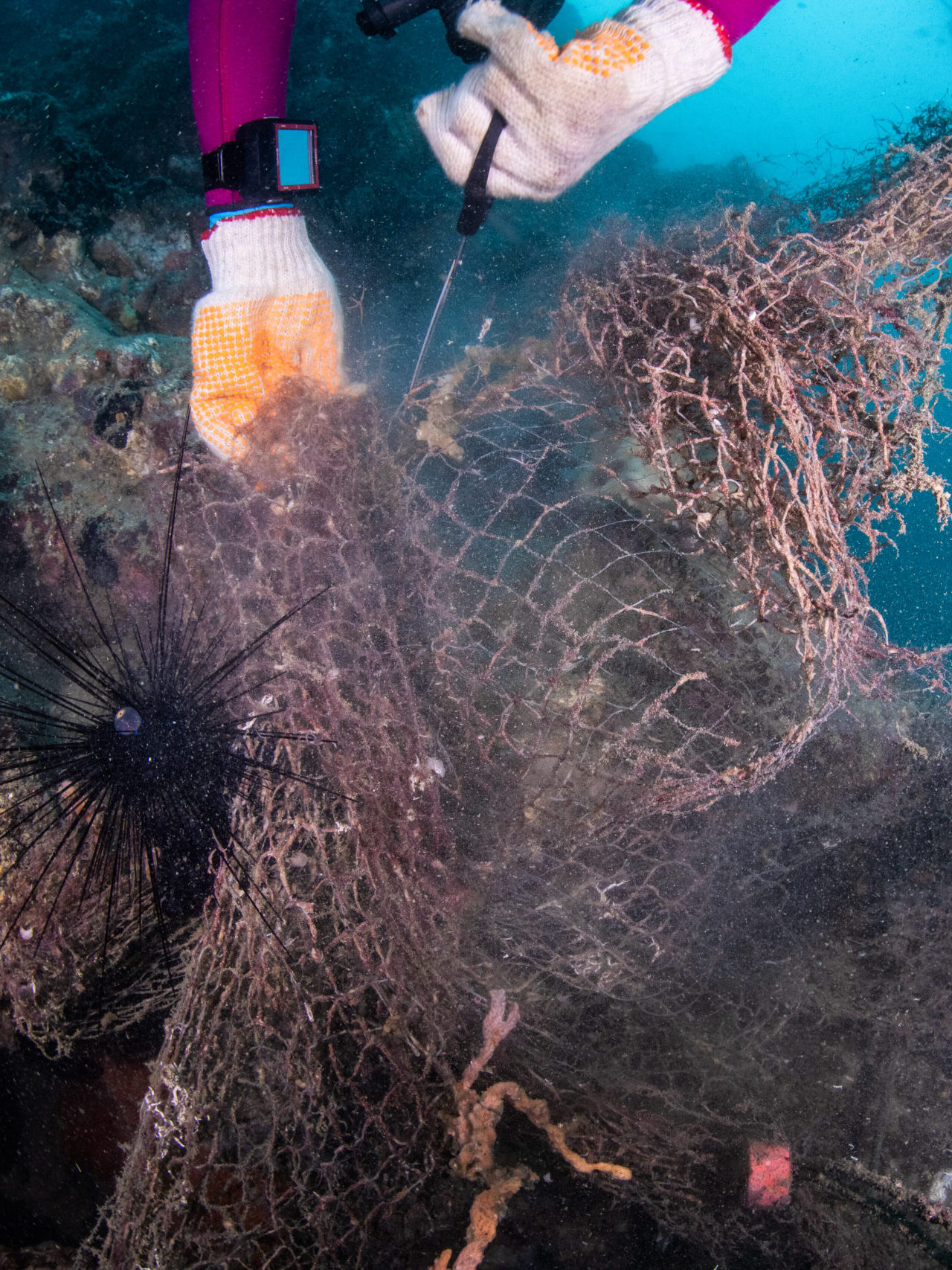 Photo by EJFPhoto by EJF
Photo by EJFPhoto by EJFAbandoned, lost, and discarded fishing gear (ALDFG) is a critical issue in Thailand, where it accounts for a significant portion of marine plastic pollution. ALDFG not only devastates marine ecosystems and biodiversity but also undermines the livelihoods of coastal communities reliant on healthy fisheries. Despite growing awareness, Thailand lacks robust systems for the collection, recycling, and sustainable management of fishing gear, as well as comprehensive policies to address the full lifecycle of ALDFG—from design and production to disposal. This project seeks to tackle these gaps by empowering communities, strengthening infrastructure, and driving policy change to create a cleaner, more sustainable future for Thailand's oceans.
Approach
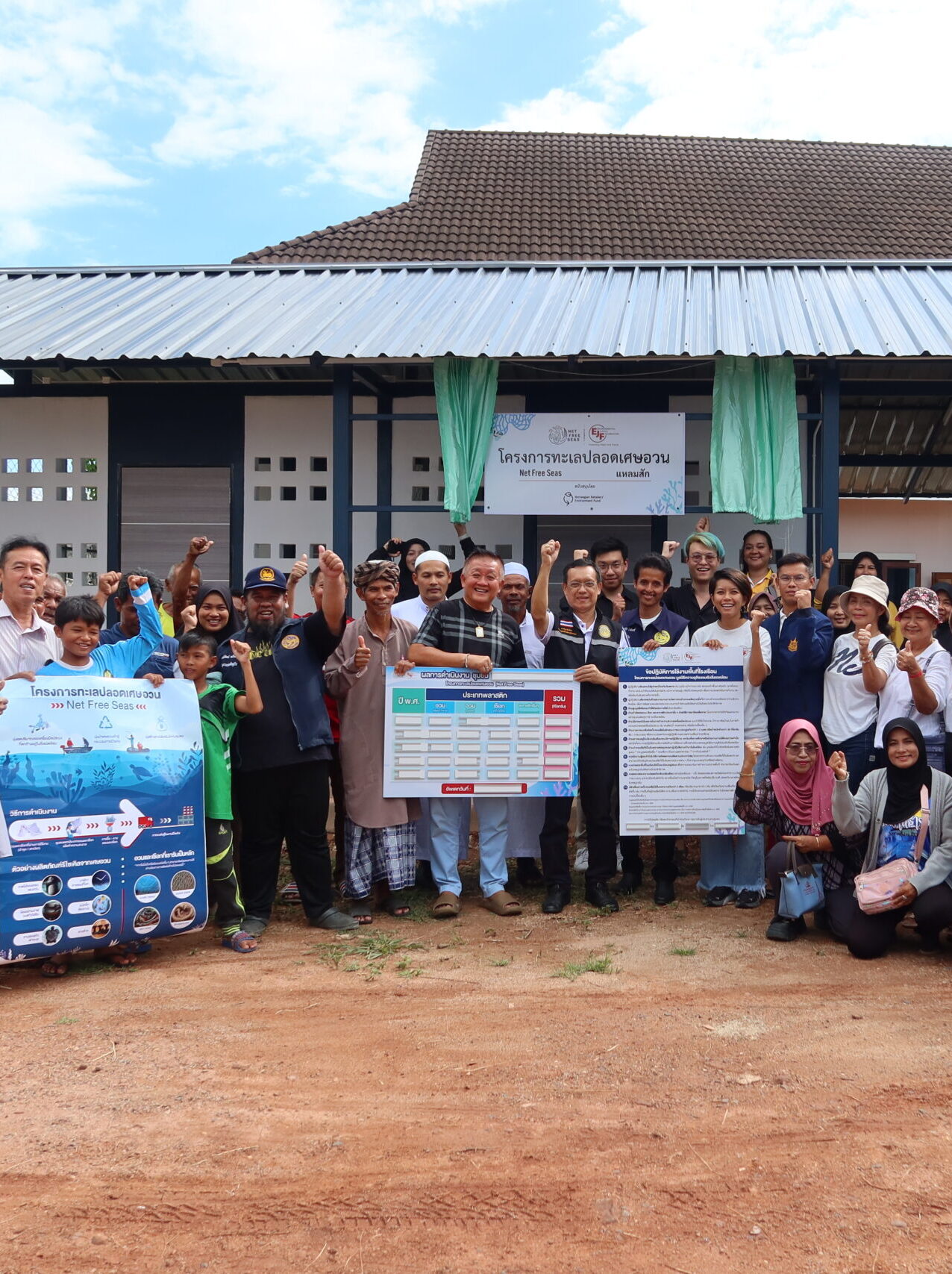 Photo by EJFPhoto by EJF
Photo by EJFPhoto by EJFTo address the ALDFG challenge, the NFS project is taking the following actions:
1. Empowering Coastal Communities
Expanding the network of NFS Champions by training artisanal fishers and community members to become leaders and advocates in plastic pollution prevention. By 2027, the number of NFS community centers will increase from 20 to 40, creating a stronger, more connected network of coastal advocates.
2. Strengthening ALDFG Management Systems
Developing infrastructure in NFS centers to improve the collection, cleaning, and recycling of ALDFG. This includes providing communities with the tools and equipment needed to safely handle and process fishing gear waste, while fostering partnerships with recycling companies to create a sustainable supply chain.
3. Driving Policy Change and Public Engagement
Advocating for stronger national policies that address the full lifecycle of ALDFG, with a focus on upstream solutions such as improved fishing gear design and clear management protocols. The project also engages the public through compelling films, social media campaigns, and outreach activities to raise awareness and promote community-led solutions.
Outcomes
By 2027, this project aims to achieve the following:
